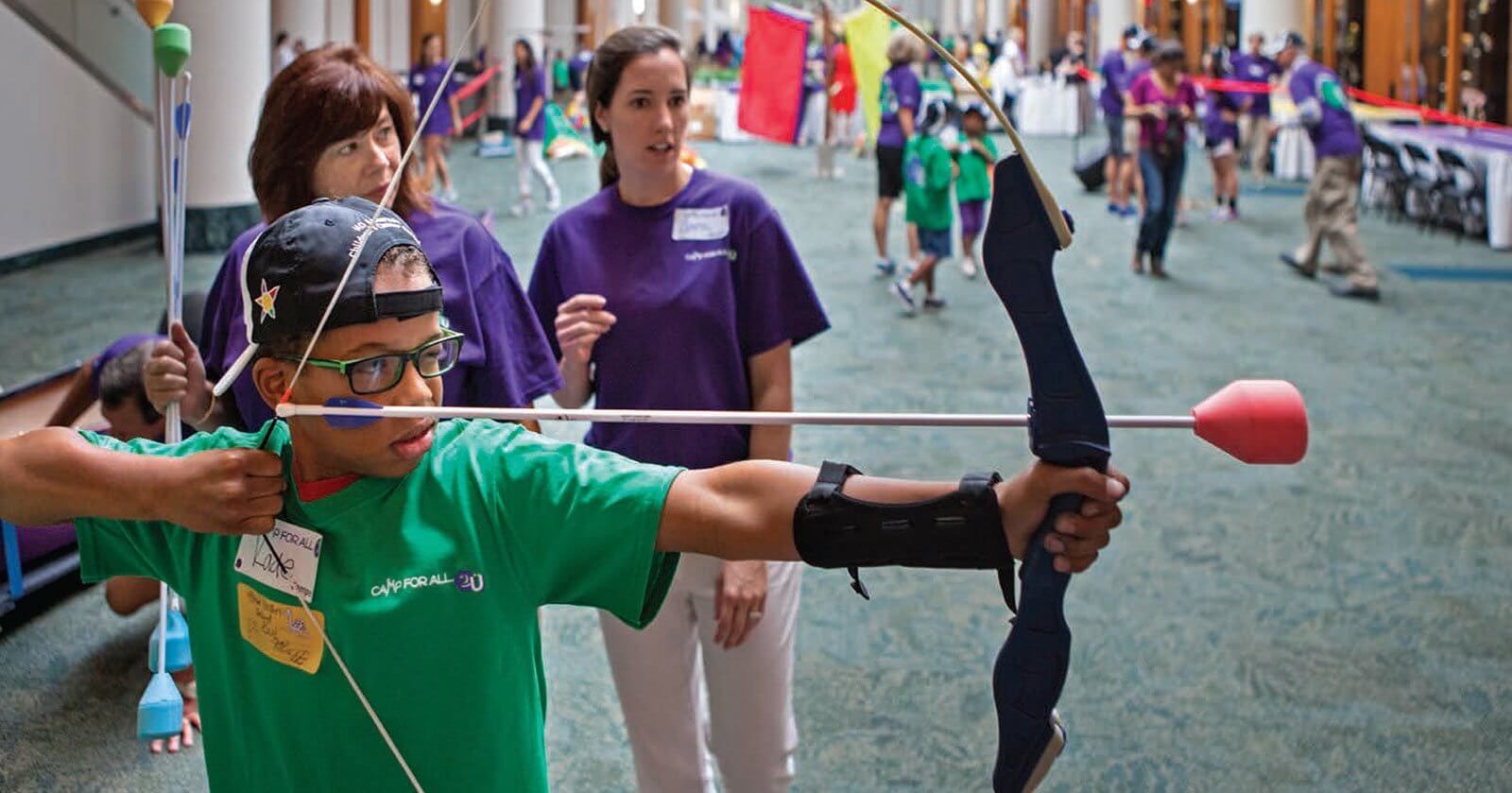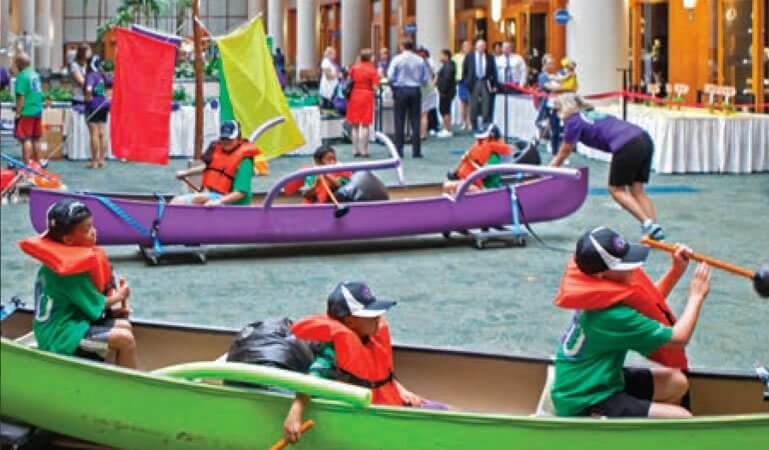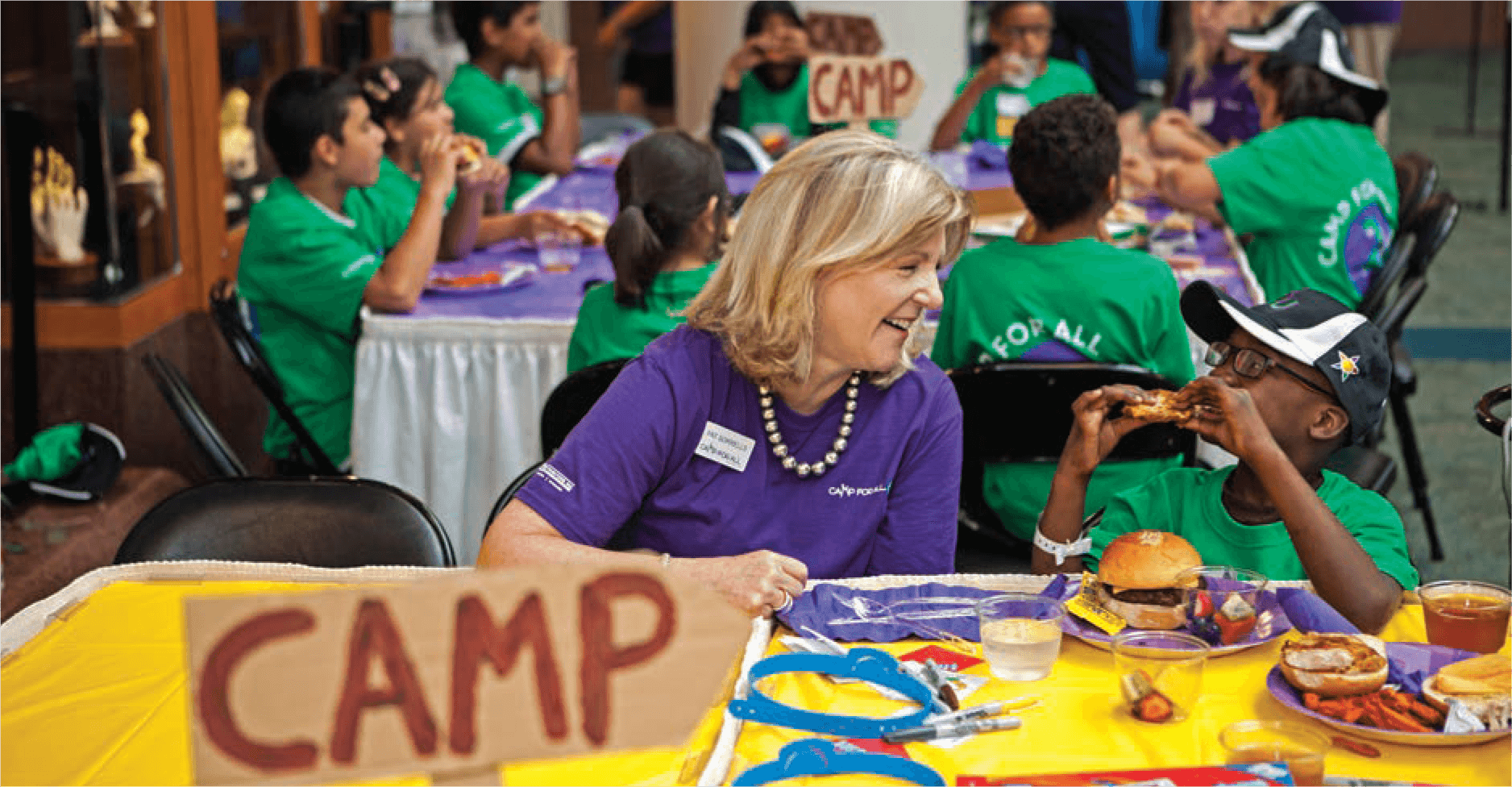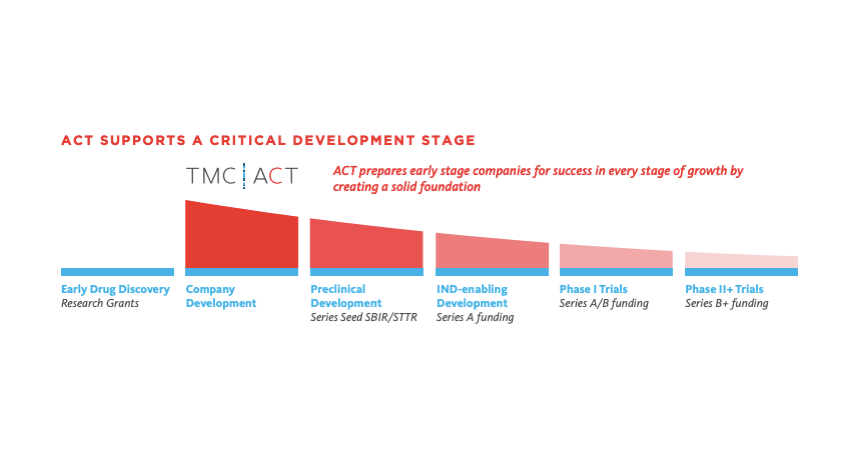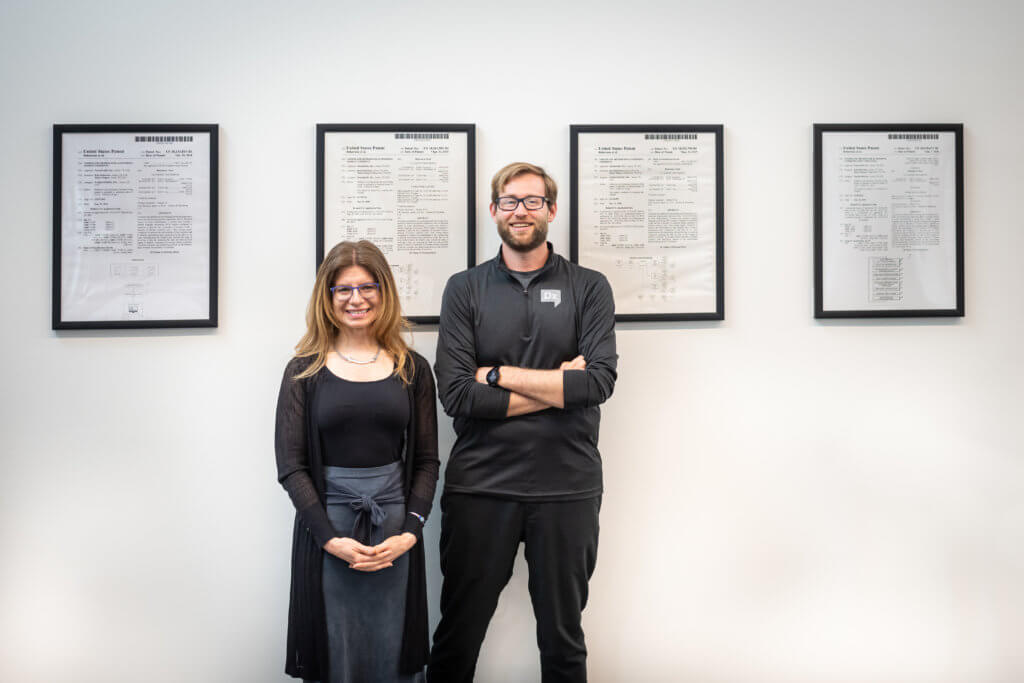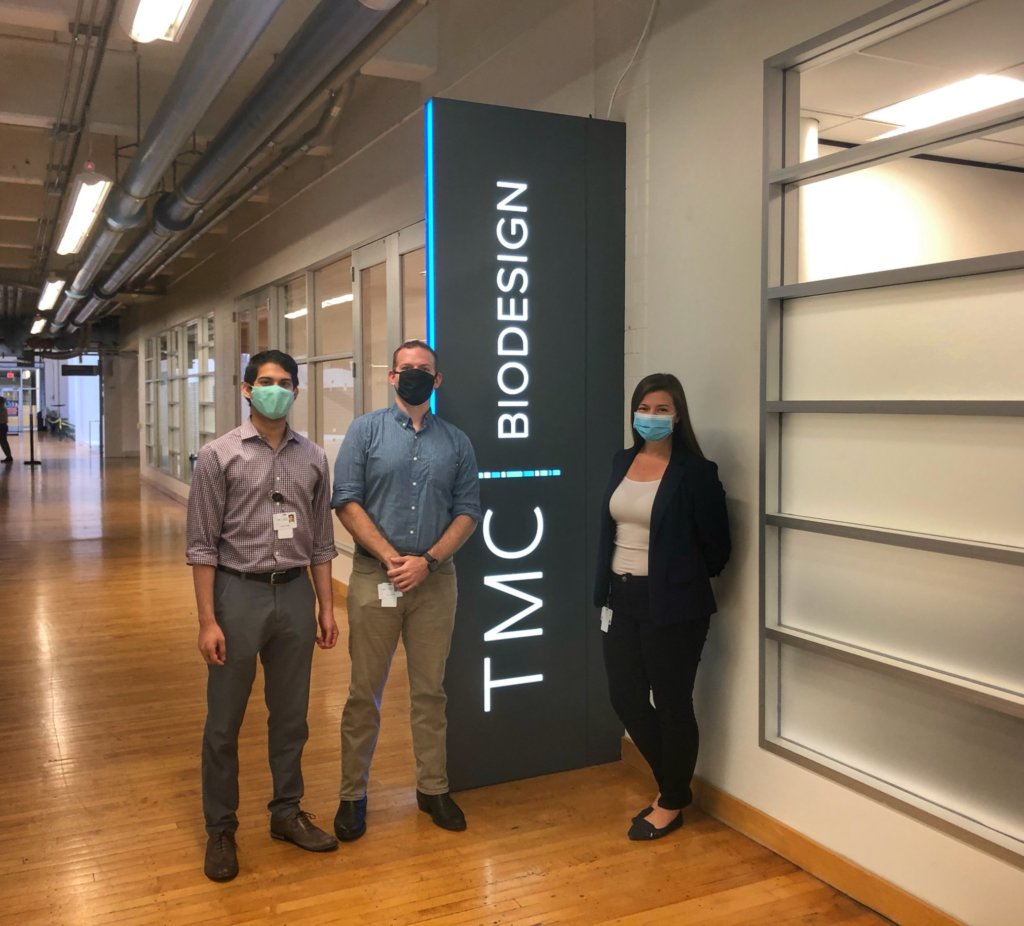Bringing the Outdoors In
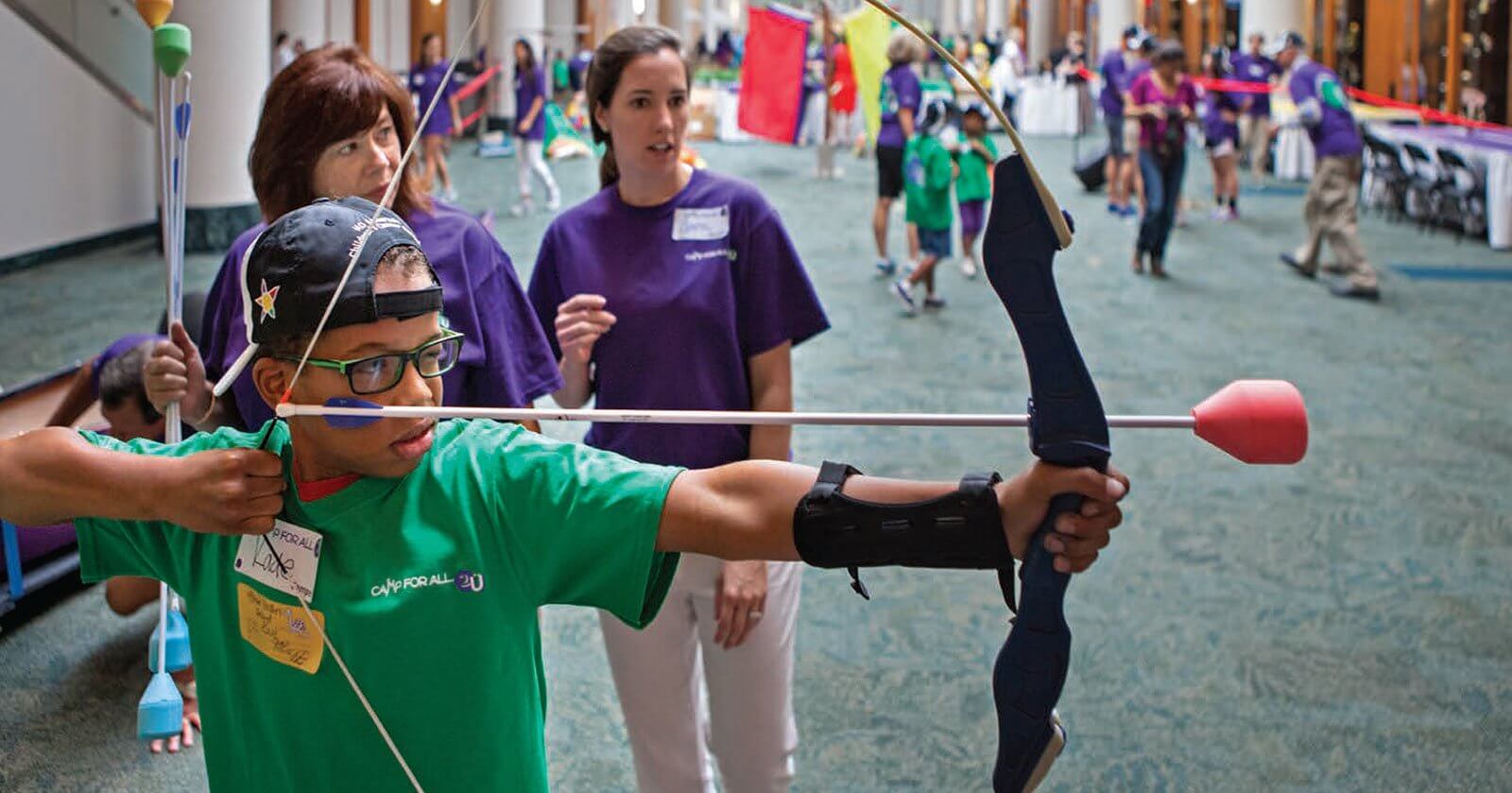
Among a chorus of cheering and applause, a bow lets out a subtle ‘thwock’ as a plush arrow connects with its target. Armed with makeshift paddles of plungers and pool noodles, campers in life vests navigate their canoes, elevated on dollies for moving furniture and pushed by volunteer camp counselors, across the carpeted floor. A miniature zip-line hums in the background as campers fly across the side of the room from one point to another. Surprisingly, all of these activities took place inside of The University of Texas MD Anderson Cancer Center’s main building, where the second floor Alkek Park was temporarily transformed for a few days in the middle of July. Welcome to camp.
MD Anderson Children’s Cancer Hospital and Camp For All teamed up to bring the outdoor camp experience indoors to children and teens diagnosed with cancer, as well as their siblings. Known as Camp For All 2U, the activities ran daily from July 15-18, replicating a camp experience while enriching the lives of the participants.
“Our goal was to provide activities that were real camp activities, not things that would normally be done in a hospital setting to entertain kids,” said Pat Sorrells, president and chief executive officer of Camp For All. “Even though we’re still at MD Anderson, we wanted to provide kids with a different atmosphere to interact with. We want these kids to leave feeling normal, whole and with the belief that they can still do things, even in a clinical setting.”
Located in Burton, Texas, Camp For All works in conjunction with 60 different nonprofit camps, providing a handicap-accessible, barrier free camp facility and presenting programs that are cutting edge, universal and inclusive. Embracing true partnership, these nonprofit organizations close the gap by bringing the campers, medical staff and any necessary equipment, as well as “in-cabin” counselors. Regardless of the campers’ physical capabilities, there are activities available that everyone can participate in. Each June, more than 150 MD Anderson patients and their siblings pack their bags and head to Camp Star Trails, hosted at Camp For All’s facility in Burton, for a week of fostering friendships, creating new memories, and maybe acquiring a few bug bites.
An extension of their longstanding collaboration with MD Anderson, a selection of Camp For All’s expansive catalogue of activities was made portable for Camp For All 2U thanks to the efforts of their program activity staff. Campers had the opportunity to zip line, learn archery, canoe, tell stories around a mock campfire, perform skits, make s’mores and even throw a pie at their doctors. Even further demonstrating the ingenuity involved in bringing the camp experience indoors, campers were grouped by age to inspire and replicate the bond of a cabin, sowing the seeds to build and strengthen friendships.
“The opportunity for these kids to have choice and control in an environment where choice and control aren’t typically available is great,” said Lauren Shinn, a child life specialist at MD Anderson Children’s Cancer Hospital. “One of the main goals of camp, in general, is to help with life skills like independence, making decisions and problem solving. By bringing those camp activities into a facility, like a hospital, where kids don’t have a lot of chances to flex those skill sets, it gives them back a little bit of control. It brings in some of their normal childhood experiences so that they can now have a positive association with the hospital.”
For many aspiring campers who struggle with challenging illnesses or have special needs, the ability to have that experience is hampered by their medical challenges. Whether at Camp For All’s facilities in Burton, or in the newly designed portable version at MD Anderson, campers can expect expert medical care along with a structure of solidarity and support. “This past year at Camp Star Trails we had a physician, a pediatric fellow, two nurses, a psychology fellow and a child life specialist, to help with the psychosocial needs out there,” said Shinn. “The idea is to create a camping opportunity for these kids—even if they’re physically able and feeling well enough to go, most camps aren’t able to support them medically if something comes up. We’re able to do that.”
“The doctors here are really interested in getting these kids well,” added Sorrells. “They’re focused on the physical component of healing, but we can help them heal the whole child by focusing on the emotional healing process.”
The Texas A&M University Department of Recreation, Park and Tourism Sciences, conducted a multiple year study on Camp For All from 2007 to 2009 to understand outcomes associated with camp participation. According to Sorrells, they reached the understanding that kids left camp with a sense of hope, a growth in self-confidence and in an environment surrounded by people in the same circumstances, they realized that they weren’t alone.
“We want to learn from this experience and grow so that we can offer it to other partners here in Houston,” concluded Sorrells. “Due to their medical restrictions, not all kids can come to camp, so this is a way for them to have a taste of that experience. Camping helps these kids learn what they’re capable of and allows them to realize that they’re not defined by their particular challenge. We want to give them choices and chances to experience what they can do instead of what they can’t do. It’s not just camping—it’s changing lives.”

